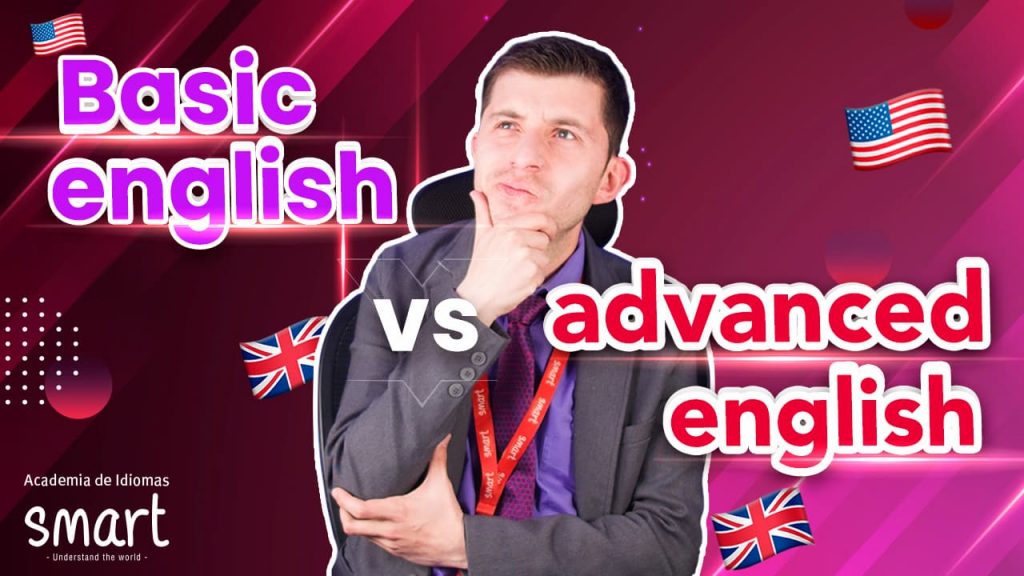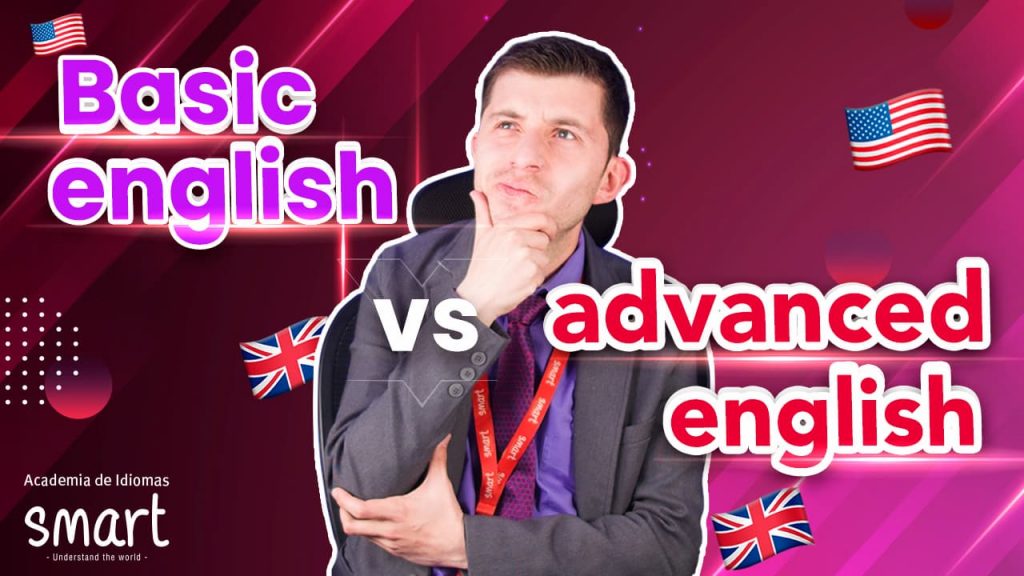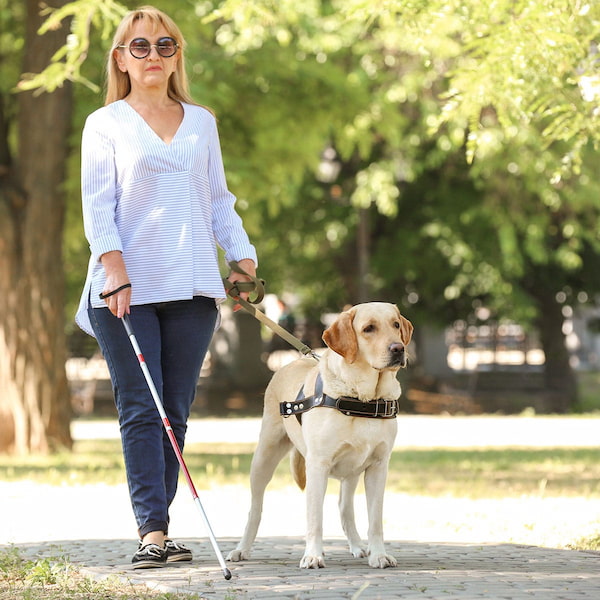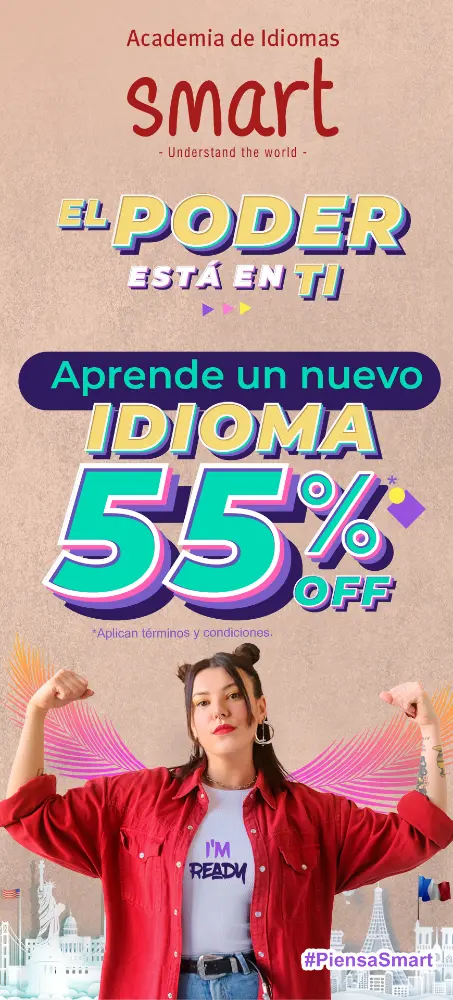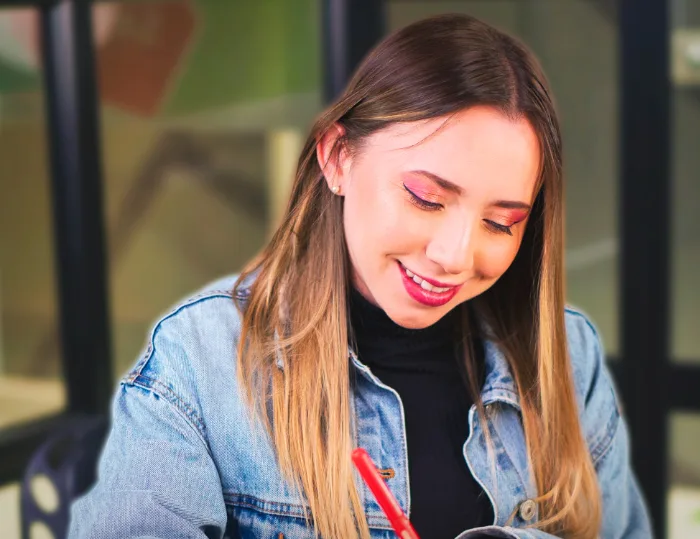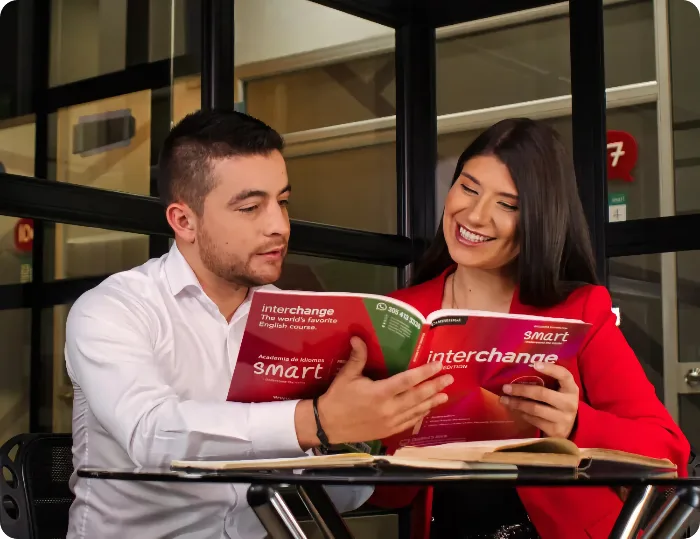Sabemos que uno de los obstáculos más grandes de aprender un nuevo idioma es tener un buen vocabulario, muchas veces olvidamos algunas palabras y recurrimos a nuestra recursividad lingüística para lograr explicar con palabras generales y sencillas lo que queremos decir. Aunque no está mal, de hecho, es una gran habilidad para desarrollar, no deja de mostrar que estamos dependiendo de palabras muy comunes que evidencian que aún tenemos mucho por aprender del inglés.
 Por eso, hoy hemos preparado un ejercicio corto en el que vas a ver cómo al utilizar palabras más avanzadas, podemos sonar mucho más naturales y mostrar que tenemos un mejor manejo del idioma. Así que vamos a leer una misma historia con diferentes palabras para que te des cuenta de la diferencia entre usar vocabulario básico o avanzado. Pon mucha atención a las palabras en negrilla para que veas como cambian en ambas versiones.
Por eso, hoy hemos preparado un ejercicio corto en el que vas a ver cómo al utilizar palabras más avanzadas, podemos sonar mucho más naturales y mostrar que tenemos un mejor manejo del idioma. Así que vamos a leer una misma historia con diferentes palabras para que te des cuenta de la diferencia entre usar vocabulario básico o avanzado. Pon mucha atención a las palabras en negrilla para que veas como cambian en ambas versiones.
Two men are walking their dogs in the park, a poodle, and a golden retriever. After feeling tired, they decide to get into a bar and have a beer, but then the poodle’s owner says, “but wait! we can’t bring dogs into the bar” and so the golden retriever’s owner answers “don’t worry, just watch this”. He puts on his sunglasses and walks into the bar. “Hey, no dogs!” yells the bartender. “Excuse me, don’t you see that I’m blind? this is my assistance dog!”, says the golden retriever’s owner. “Oh, yes I’m sorry” says the bartender and walks the man to a table. The poodle’s owner then decides to imitate the other guy, he wears his sunglasses and walks into the bar. “Hey, no dogs!” yells the bartender again. “But this is my assistance dog, I’m blind” says the poodle’s owner. Then the bartender protests “poodles can’t be assistance dogs!” Shocked, the dog owner yells “what? the agency gave a poodle?”
Esta ha sido una historia bastante divertida y fácil de entender, pero noten que estamos usando expresiones de nivel básico como imitate, don’t worry, feel tired etc. Así que vamos a ver cómo mejorar esto para sonar mucho más como lo diría un nativo. Mira cómo cambia, si remplazamos algunas palabras
Two men are walking their dogs in the park, a poodle, and a golden retriever. After feeling worn out, they decide to get into a bar and bend an elbow, but then the poodle’s owner says, “Hold on, dogs aren’t allowed into the bar” and so the golden retriever’s owner answers “stay cool, and check this out”. He whips out his sunglasses and walks into the bar. “Hey, no dogs!” yells the bartender. “Excuse me, don’t you see that I’m unsighted? this is my seeing eye dog!”, says the golden retriever’s owner. “Oh, yes I beg your pardon” says the bartender and walks the man to a table. The poodle’s owner then decides to follow suit the other guy, he wears his sunglasses and walks into the bar. “Hey, no dogs!” yells the bartender again. “But this is my seeing eye, I’m visually impaired” says the poodle’s owner. Then the bartender protests “poodles ain’t assistance dogs!” Shocked, the dog owner gasps “what? my dog is a poodle?”
¿Te diste cuenta cómo cambian las cosas? Ambas versiones dicen lo mismo, pero la segunda está usando un vocabulario mucho más común y avanzado en inglés.
Ahora, vamos a ver qué tanto aprendiste el día de hoy. ¿Qué tal un quiz? ¿Estás listo?
Q1. What is another way to say “tired”?
A: over burned
B: Stressed out
C: Worn out
D: Turned off
Answer: C
Q2: What does “to bend an elbow” mean?
A: To walk your dog
B: To enter a bar
C: To wear sunglasses
D: To have a beer
Answer: D
Q3: What do you call this type of dog?
A: Helping dog
B: Seeing eye dog
C: Dog for the blind
D: Attendance dog
Answer: B
Q4: ¿Cuál de estos significa “imitar”?
A: Follow suit
B: Whip out
C: Show off
D: Blend in
Answer: A
Q5: What is a better way to call someone blind?
A: Unable
B: Despaired
C: Unsighted
D: Unseeing
Answer: C
Bueno, espero que hayas aprendido algunas palabras nuevas después de este ejercicio y que de ahora en adelante las uses en tus conversaciones y dejes a los demás con la boca abierta usando este tipo de expresiones avanzadas!
Recuerda que Smart cuenta con una gran variedad de cursos que te ayudan a mejorar tu vocabulario con métodos de enseñanza que se adaptan a ti. Inscríbete en https://latam.smart.edu.co/ y empieza o continua con tu meta de aprender un nuevo idioma. Piensa grande #PiensaSmart.

